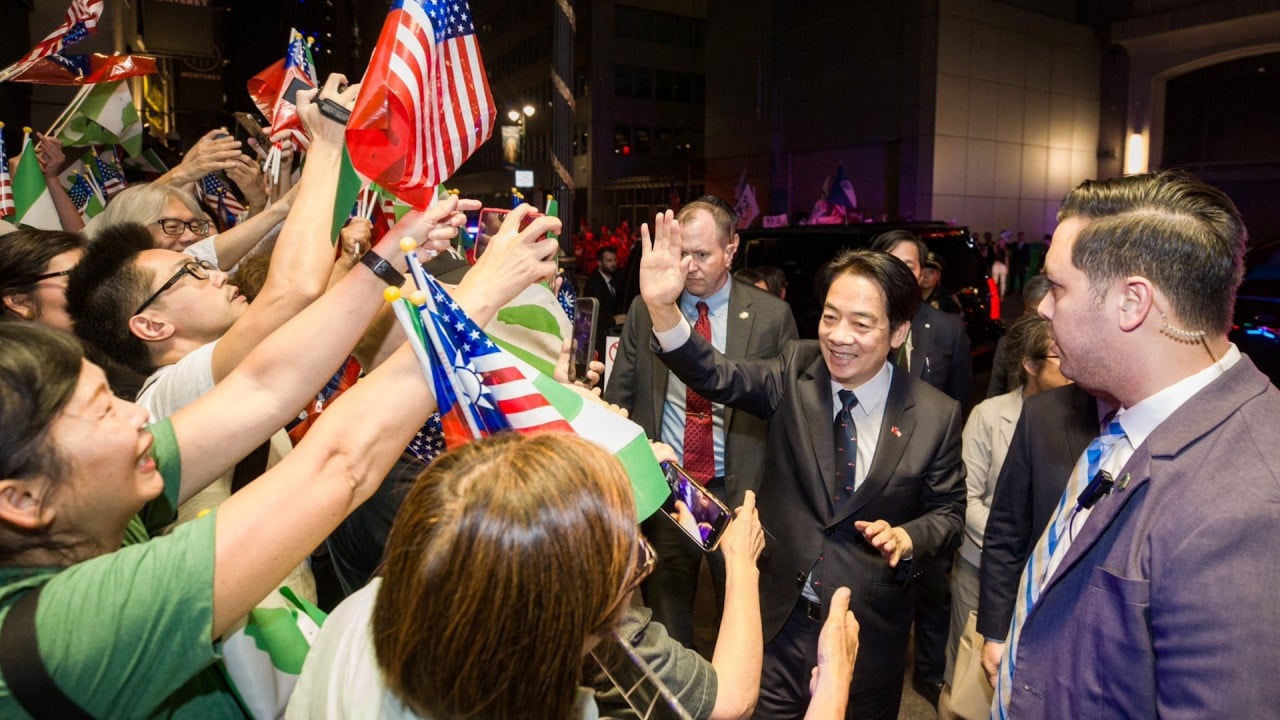
Mainland China bans Taiwanese mangoes in latest trade barb, Taipei hits out at ‘one-sided’ act
- Beijing’s Taiwan Affairs Office said ‘pests’ detected on imports of mangoes from Taiwan could hurt farm production and its ‘ecological safety’
- Also on Monday, Taiwan confirmed its overall export orders to mainland China and Hong Kong declined by just 4.2 per cent last month, year on year
Mainland China banned imports of mangoes from Taiwan from Monday in the latest hit to the island’s agricultural sector amid worsening political ties following the recent US stopovers by Taiwanese vice-president and leading presidential contender William Lai Ching-te.
Tests on one of Taiwan’s prized crops enjoyed by mainland Chinese consumers detected a species of mealybug insects, with Beijing’s Taiwan Affairs Office saying the “pests” could hurt farm production and its “ecological safety”.
Taiwan’s Ministry of Agriculture confirmed the ban, calling it a “one-sided” act.
Mainland China sees self-ruled Taiwan as a breakaway territory that must be united, by force if needed.
Relations have worsened in recent years, and the fate of Taiwan remains a flashpoint between China and the United States.
Countries that have diplomatic ties with Beijing, including the US, acknowledge the existence of a one-China principle that holds Taiwan to be part of China. Washington, however, opposes any attempt to change the cross-strait status quo.
Taiwan has produced more than 170,000 metric tonnes of mangoes this year, with 2.2 per cent for export, the Ministry of Agriculture in Taipei said.
The ministry said mainland China had received just 938 metric tonnes of mangoes in 2023.
The measures are normal biosecurity precautions, which are scientific, reasonable, and in line with relevant mainland laws, regulations and standards
The Taiwan Affairs Office said it had notified Taiwanese officials of the ban and “demanded that Taiwan further improve the plant quarantine management system”, it said in a statement posted on the Weibo account of the state-backed CCTV.
“The measures are normal biosecurity precautions, which are scientific, reasonable, and in line with relevant mainland laws, regulations and standards,” it said.
The Ministry of Agriculture in Taipei acknowledged it had been notified by mainland Chinese officials of shipments of mangoes in June and early August that contained mealybugs.
Taiwanese growers and packagers were notified and told to make improvements, the statement added.
We deeply regret the practice of arbitrarily suspending trade without scientific dialogue
The ministry said 5,600 shipments of mangoes had reached mainland Chinese since 2018.
“We deeply regret the practice of arbitrarily suspending trade without scientific dialogue,” the statement said.
“The Ministry of Agriculture will continue to appeal to China through bilateral channels to conduct technical dialogue … to find a reasonable solution to resume mango sales as soon as possible.”
Mango growers in Taiwan’s farming-intensive Pingtung county, though, are unconcerned by Beijing’s ban because most of their produce is sold to the domestic market or to other Asian countries, said a member of staff surnamed Chen for the Pingtung Fang Shan Farmers’ Associations.
Also on Monday, Taiwan’s Ministry of Economic Affairs confirmed its overall export orders to mainland China and Hong Kong declined by just 4.2 per cent last month, year-on-year, less severe than the fall in the first half of 2023.
Taiwan’s worldwide export orders, though, fell by 12 per cent last month, year on year, to US$47.73 billion, marking an 11th consecutive monthly decline.
It follows the government’s decision to revise its 2023 gross domestic product growth forecast from 2.04 per cent to just 1.61 per cent.
Exports in the second quarter were “mainly dragged by the weak global demand and prolonged inventory adjustments”, Taiwan’s Directorate General of Budget, Accounting and Statistics said on Friday.
The weakening in China’s recovery will likely show up more in the July data with confidence increasingly seeping out of China,
Exports orders from the United States – Taiwan’s biggest market in July at US$14.29 billion – fell by 18.6 per cent last month.
With the West grappling with inflation and interest rate increases, Taiwan’s export orders from Europe also fell by 32 per cent, year on year, last month.
Southeast Asia, though, bucked the trend by arranging 33.7 per cent more shipments from Taiwan in July compared to a year earlier.
Taiwan’s exports follow world interest in its hi-tech hardware, including semiconductor chips. Technology makes up 30 per cent of Taiwan’s US$820 billion-plus economy and the island makes around 60 per cent of the world’s chips.
Demand for tech hardware has slipped since the coronavirus pandemic, when consumers bought devices to work and study at home.
Orders of consumer electronics from Taiwan fell by 0.4 per cent last month, year on year, to US$17.71 billion. Orders for telecommunication products, meanwhile, dropped by 14.9 per cent to US$12.73 billion.
Downbeat export-order data is likely to continue until the end of the year, said Woods Chen, head of macroeconomics at the Taipei-based Yuanta Securities.


